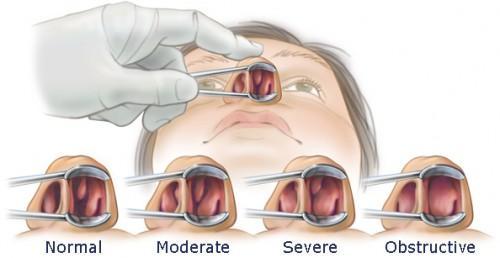Sinus surgery is a medical procedure that aims to alleviate symptoms and improve sinus function in individuals with chronic sinusitis, nasal polyps, or structural abnormalities. When conservative treatments fail to provide relief, sinus surgery becomes a viable option.
In this guide, we explain why your ear, nose, and throat (ENT) specialist may recommend sinus surgery. We will also touch on the seriousness and safety of the procedure among other basics.
Table of Contents
What is Sinus Surgery and What can it help with?
Sinus surgery involves various surgical techniques to address underlying issues in the sinuses. Its primary goal is to relieve symptoms and improve sinus function. This procedure is typically considered when conservative treatments, like medication and nasal sprays, have proven ineffective. The common conditions that a sinus surgery can help with include;
- Chronic Sinusitis: Chronic sinusitis refers to long-lasting inflammation of the sinuses. This may lead to persistent symptoms like facial pain, nasal congestion, and difficulty breathing. Sinus surgery may be recommended to effectively address underlying issues. It can help patients achieve relief by reducing inflammation.
- Nasal Polyps: These are soft, noncancerous growths that can develop in the sinuses or nasal passages. They often accompany chronic sinusitis. Your ENT doctor may recommend nasal polyps removal if they’ve grown too large to cause symptoms that impact your quality of life. In such cases, sinus surgery becomes necessary to remove polyps and restore proper nasal function.
- Structural Abnormalities: Structural abnormalities like a deviated septum or nasal valve collapse can impede normal sinus drainage. They may also impact the normal airflow and cause chronic sinus issues. Sinus surgery can correct these abnormalities, improving breathing and reducing symptoms.
How do I Know if I Need Surgery for Sinusitis?
Usually, a specialist doctor like an ENT specialist will only recommend surgical procedures like sinus surgery for example, if they’re positive that, the procedure is the best option for you. But there isn’t anything wrong with you wanting to know if you need surgery for sinusitis. Here are the top indications that your doctor will look into or consider before recommending or considering sinus surgery;
- If you get Persistent Symptoms: When sinus-related symptoms persist despite trying various treatments, you may be recommended a sinus surgery. Chronic sinusitis symptoms, like facial pressure, nasal congestion, and impaired sense of smell, can significantly impact quality of life. Surgery can provide long-term relief and improve overall well-being by addressing the main condition responsible for these symptoms.
- If you Have Failed Conservative Treatments: Before considering sinus surgery, healthcare providers typically exhausts non-surgical treatments, including medication, saline nasal irrigation, and allergy management. If these approaches fail to provide adequate relief, surgery may be recommended.
- Diagnostic Findings: ENT specialists use diagnostic tests, like endoscopy and imaging, to evaluate the severity and extent of sinus-related issues. These findings help determine the need for sinus surgery. They also help guide your treatment plan.
So, is it a Good Idea to have Sinus Surgery?
To begin, sinus surgery is one of the most common procedures. It is also considered extremely safe. However, your ENT surgeon may only consider sinus surgery a “good idea” if you have;
- A badly damaged sinus tissue
- Benign growths (polyps)
- Fungal sinus infection or
- Structural sinus problems that impair natural sinuses drainage
If approved for a sinus surgery, this procedure will be performed by qualified surgeons in a controlled environment. One common technique is endoscopic sinus surgery, which involves inserting a thin, flexible tube with a camera (endoscope) into the nose to visualize and address sinus issues.
This minimally invasive approach allows for precise treatment. Advancements in minimally invasive sinus surgery techniques have also revolutionized the field.
Now, there are minimally invasive approaches that result in reduced pain, faster recovery, and minimal scarring. It is worth mentioning that even though sinus surgery is generally safe, there are potential risks and complications.
These can include infection, bleeding, and adverse reactions to anesthesia. It is important to note that serious complications are rare, and healthcare professionals take necessary precautions to minimize risks and ensure patient safety. Here’s what to expect after your sinus surgery;
- Immediate Postoperative Period: After your sinus surgery, you may experience temporary symptoms like nasal congestion, pain, and mild bleeding. Please, follow the postoperative care instructions for managing these symptoms for a smooth recovery. Also, be sure to stay hydrated. Also, avoid strenuous activities, and take prescribed medications as directed.
- Long-Term Recovery: Recovery times vary. However, most individuals can expect improvement within a few weeks. During the recovery period, please follow your surgeon’s instructions as advised. Also, attend all scheduled follow-up appointments as recommended. Lifestyle modifications, like avoiding irritants and maintaining good nasal hygiene, can aid in optimal recovery and prevent future complications.
How to Prevent the Need for Sinus Surgery
If you do not fancy going under the knife, the best way to avoid a sinus surgery is to care for your health. Here are two top recommendations for top sinus health;
- Maintaining Good Nasal Health: To minimize the risk of sinus-related issues, it is essential to maintain healthy sinuses. This includes practicing good nasal hygiene, like regular nasal irrigation with saline solution, which helps keep the nasal passages clean and clear. Managing allergies effectively and avoiding environmental irritants can also contribute to overall sinus health.
- Effective Sinusitis Management: To prevent the progression of sinusitis and potential surgery, it is crucial to address symptoms promptly. Seeking medical advice when experiencing persistent symptoms and adhering to the recommended treatment plan can help manage sinusitis effectively. Also, take steps to boost your immune system. You can achieve this by maintaining a healthy lifestyle and managing stress.
That’s a Wrap!
Sinus surgery may be ideal for you if you’re suffering from chronic sinusitis. It may also be the most viable option for you if you’re struggling with nasal polyps, or structural abnormalities.
If surgery becomes necessary, advancements in minimally invasive techniques offer safer and more efficient outcomes. Consult with a healthcare professional to determine the best course of action for your sinus-related concerns and to explore available treatment options. If you’re in Singapore, call or visit a reputed ENT specialist at:
Dr Soma – Allergy & Sinus ENT Specialist @ Parkway East | Earwax Removal | Sinus Surgery Singapore
321 Joo Chiat Pl,
#05-01 Parkway East Specialist Hospital,
Singapore 427990
+65 6517 9760


 Home
Home









